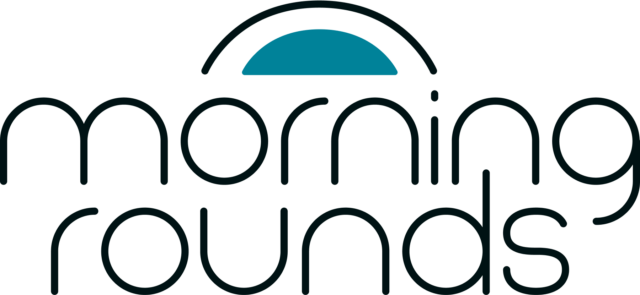
A large outbreak of Marburg virus in Rwanda is drawing international concern about the possibility of spread beyond the country’s borders.
The number of cases detected so far, 27, already makes the outbreak one of the biggest involving Marburg on record. Nine of those individuals have died. There are currently no licensed vaccines to combat the disease.
Most of the cases detected to date — over 70% — have been in health professionals who work in two hospitals in the capital city, Kigali, which is home to 1.7 million people. Kigali is also a regional and international travel hub; flights from the city go to destinations in about 20 countries in Africa, the Middle East, and Asia.
In a statement issued late Monday, the World Health Organization categorized the risk of spread to neighboring countries as high. It also suggested there is a risk of spread beyond East Africa.
In fact, one contact of a suspected case — the person currently thought to be the first case, or index case, in this outbreak — did travel to another country, the WHO said. Its statement did not identify the country, but a slide mapping what is known about the chains of transmission that was posted on the social media site X named it as Belgium. Sources told STAT that Belgian authorities were notified of the possibility that the individual may have been in contact with a case. The WHO’s statement said “appropriate response measures have been implemented” by the country in question.
“WHO assesses the risk of this outbreak as very high at the national level, high at the regional level, and low at the global level,” the WHO said. “Investigations are ongoing to determine the full extent of the outbreak and this risk assessment will be updated as more information is received.”
Although the disease causes illness similar to that induced by its cousin virus, Ebola, Marburg outbreaks have historically involved fewer than 10 cases. There have only been two reported outbreaks numbering more than 100 cases. The biggest Marburg outbreak on record occurred in 2004-2005 in Uije, Angola, where there were 252 confirmed cases and 227 deaths.
Experts suggest that Rwanda’s advanced health care system is up to the challenge of handling this outbreak.
“Rwanda has become really kind of a stellar standout in the region for its contribution to health security and it’s clearly improved response not only to things like this — outbreaks and preparedness — but really chronic disease and many other things that have kind of plagued the region in recent history,” said Craig Spencer, an associate professor in Brown University’s School of Public Health.
Spencer, who has worked with Doctors Without Borders (or Médecins Sans Frontières in French) on a number of Ebola outbreaks — and contracted Ebola in the West African outbreak in 2014 — has done response work in Rwanda, though not recently. The country has built its capacities to the point where it typically doesn’t need the type of outside help that MSF provides, Spencer said, adding: “Their health system has become remarkably much stronger.”
It is not clear how long the outbreak has been underway, or in what part of the country it started. Cases have been detected in seven of the country’s 30 districts. The Rwandan government is conducting contact tracing to identify people who were exposed to confirmed cases and may have been infected. To date 300 contacts are being monitored.
In many places plagued by viral hemorrhagic fever outbreaks — Ebola and Marburg fall into this disease category — cases materializing among health care workers can signify an outbreak that has been smoldering for some time in the community, only becoming apparent when health workers begin to get infected. This is particularly the case when an outbreak begins in a remote setting with poor road links to other locations.
But Spencer said the caliber of Rwandan health care, and the quality of the country’s road network could mean that that isn’t the situation at play here. It is possible, he suggested, that early patients might have sought care in Kigali.
Likewise, while the notion of Marburg or Ebola cases in a large city is often a source of dread — the West African outbreak exploded when Ebola hit urban centers — in this case it may be less problematic, because of the response capacity that exists in Kigali, he said.
The WHO has reportedly sent a team of seven experts to Rwanda to help with the response. The Centers for Disease Control and Prevention, which has maintained an office in Rwanda for more than 20 years, has also offered assistance.
The outbreak comes at a time when several of Rwanda’s neighbors are battling outbreaks of mpox. Spencer, who has also worked in Burundi and the Democratic Republic of the Congo, said should the virus spread into those countries, control of this outbreak would become considerably more challenging.
There are several experimental drugs and vaccines for Marburg, but none has been licensed to date. The relative infrequency of Marburg outbreaks and their small size has made it impossible so far to test these products in the field.
While the two Ebola vaccines that have been licensed were sponsored by pharma giants Merck and Janssen (a division of Johnson & Johnson), the Marburg vaccines in development are in the hands of nonprofits, IAVI and the Sabin Institute.
Rwanda would have to agree to allow vaccines or drugs to be tested in this outbreak. But even if it does, Mark Feinberg, IAVI’s president and CEO, said it currently does not have doses of its vaccine that could be tested. STAT asked the Sabin Institute if it has doses that could be tested but has not yet received a response.
Correction: An earlier version of this article misspelled Mark Feinberg’s surname.






